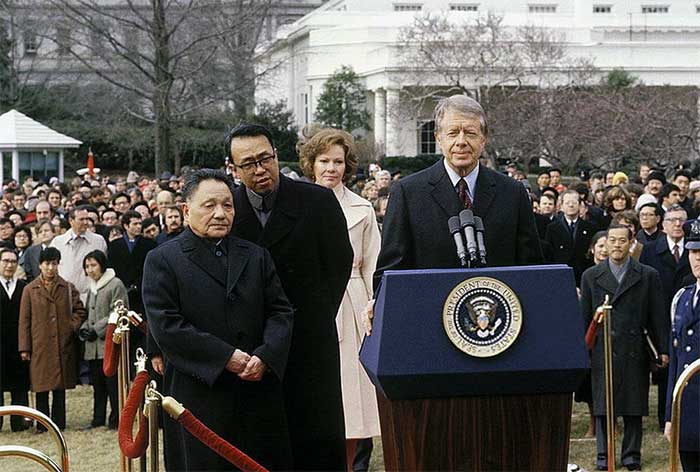Deng Xiaoping: profile of a visionary reformer
History reveals that many of the seismic changes in the political or economic fates of entire nations have often hinged on the drive of a handful of individuals. In the case of China's economy, much of the modernization that occurred towards the turn of the 20th century can be laid firmly at the foot of one visionary reformer: Deng Xiaoping.
As leader of the Communist Party of China he led his nation from an insular outlook towards a global market economy. Although he never held office as China's head of state, his position was known as the ‘paramount leader' of the People's Republic – a position he held from 1978 until 1992.
He was born into a relatively lowly peasant background in 1904 in Guang'an in Sichuan, a province in the rural heartland of China. Studying and working in France, he became strongly influenced by Marxist and Leninist doctrines, joining the Communist Party of China in 1923. After returning to his homeland he served as a commissar for the party in rural regions, working hard to convince the often conservative and distrustful peasant workers of the need to embrace the political change advocated by Communism.
His place in the annals of the history of the People's Republic was assured by his status as a revolutionary veteran of the Long March (the tactical retreat by Mao Zedong's forces facing the onslaught of General Chiang Kai-shek's Nationalist armies – an epic 12,500 kilometre struggle through some of western China's most barren terrains). Following the triumph of the Communist forces and the establishment of the People's Republic in 1949, Deng continued to serve the party in mainly rural locations, such as Tibet and other southwestern provinces, in order to consolidate the control of the new regime.
Deng played an active role in the economic reconstruction of China in the 1960s, a period known as ‘The Great Leap Forward'. The following years were characterized by intense political turmoil. Nevertheless Deng proved himself to be an apt leader, and became known as one of the chief architects of progressive forms of socialist thinking. Following on from this, he spearheaded economic reform in the late 1970s, principally through a fusion of socialist principles with free market aspirations, otherwise known as the ‘socialist market economy'.
Deng's contribution to China's economic evolution can never be understated. He is widely credited as having developed the Chinese economy into one of the fastest growing in the planet, raising living standards for hundreds of millions of his fellow citizens.

